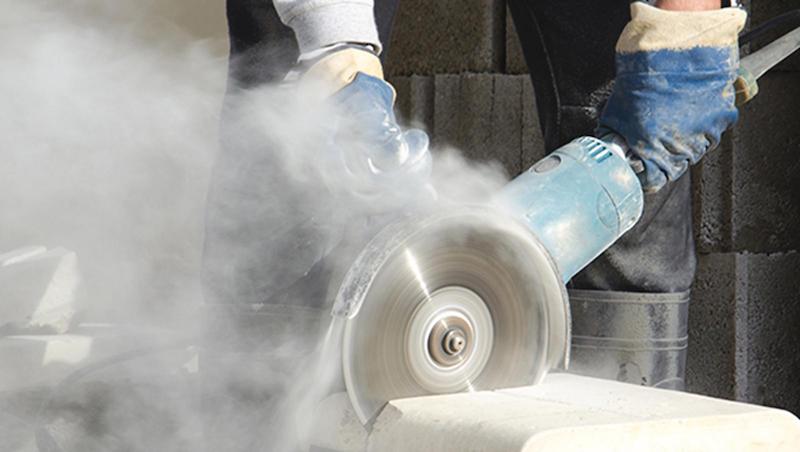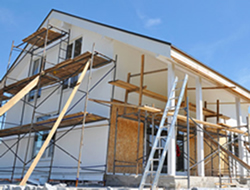
The ban on the use of engineered stone is expected to be implemented in mid-2024. Photo: File.
Commonwealth, territory and state ministers responsible for work health and safety (WHS) have unanimously agreed to Safe Work Australia’s recommendation to prohibit the use of engineered stone from next year.
The ban agreement follows findings that exposure to silica dust from engineered stone and other stone products has led to an increase in stone workers developing silicosis. Generally considered an incurable lung disease that can be fatal, silicosis is caused by respirable crystalline silica (silica dust), which is generated when engineered stone is cut, shaped or polished.
Safe Work Australia had recommended the prohibition under the model WHS laws, and will now draft amendments to the model WHS regulations for implementation by state and federal jurisdictions.
The regulator says it will also develop a national framework to ensure anyone working with engineered stone products installed prior to the prohibition is doing so safely.
It says the prohibition will ban a person conducting a business or undertaking from carrying out work, or directing or allowing a worker to carry out work, on or with engineered stone. This includes manufacturing, supplying, processing and installing engineered stone.
Rather than an immediate ban, the ministers agreed to a “transition period” to allow for contracts that have already been entered into prior to the ban.
Safe Work Australia CEO Marie Boland said the ban on the use of all engineered stone will protect the health and safety of workers.
“Workplace exposure to respirable crystalline silica has led to an unacceptable increase in the number of cases of silicosis and other silica-related diseases,” she said.
“Expert analysis shows that silica dust from engineered stone poses unique hazards and there is no evidence that low silica engineered stone is safe to work with.
“Now that a prohibition has been agreed by WHS ministers, Safe Work Australia will progress amendments to the model WHS Regulations and develop guidance to support (businesses) and workers understand and prepare for the change.”
The Construction, Forestry, Maritime Employees Union (CFMEU) welcomed the ban, calling it a “life-saving decision”.
“This is an incredibly special day for Australian workers, especially every CFMEU member who fought for this life-saving change,” National Secretary Zach Smith said.
“The CFMEU is ready to help governments implement the 1 July ban on the import, manufacture and use of engineered stone.
“From the start of this campaign, our union has said we would implement our own ban on 1 July. The decision made today means we won’t have to.”
The Australian Workers Union also welcomed the ban, but said it needs to go further.
“It’s fantastic that engineered stone has been banned, but also vital to maintain perspective,” National Secretary Paul Farrow said. “There are some 4000 stonemasons in Australia, but around 600,000 workers who are exposed to silica dust.
“Unfortunately, for most of this 600,000, there can be no ban on the materials that expose them to silica in industries such as construction, tunnelling, quarrying, mining, road work and more.”
The Public Health Association of Australia echoed the AWU’s call to take the ban further.
“This is an important day to be celebrated,” CEO Adjunct Professor Terry Slevin said.
“But it is also a call to action to work harder to reduce the known burden of those who, in their daily work are exposed to silica, and other substances injurious to the health of those who are exposed to them.
“Engineered stone is the most obvious and clear example of a dangerous product,” he added. “There are others. Perhaps less immediate in their impact, perhaps less potent, but still unfairly stealing the good health of honest, hard-working people in Australia.”
Original Article published by Andrew McLaughlin on Riotact.








